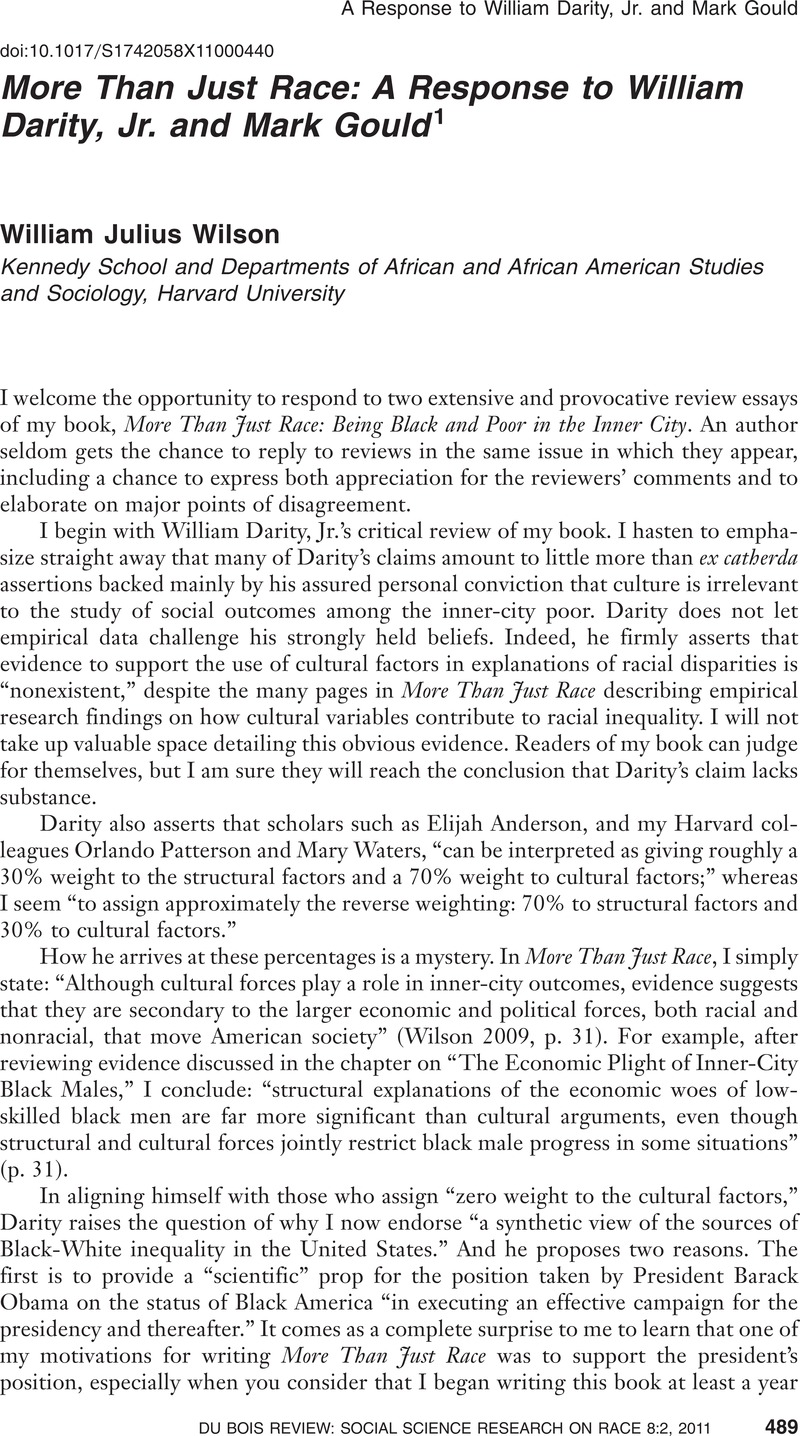Crossref Citations
This article has been cited by the following publications. This list is generated based on data provided by Crossref.
Hughey, Matthew W.
2012.
Taking culture (and race) beyond dichotomies: a reply to Gans.
Identities,
Vol. 19,
Issue. 5,
p.
639.
Francis, Dania V.
Hardy, Bradley L.
and
Jones, Damon
2022.
Black Economists on Race and Policy: Contributions to Education, Poverty and Mobility, and Public Finance.
Journal of Economic Literature,
Vol. 60,
Issue. 2,
p.
454.



